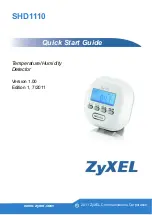
Chapter 3
117
Administering SNAplus2
Using the Motif Administration Program
You can easily access other windows from this menu.
These windows include the following:
• Emulator Users and Sessionswindow
• RJE Workstations window
• LU Pools window
• CPI-C Destination Names window
Depending on the resources you select and the options you choose, the
administration program can present additional resource windows,
configuration dialogs, or status logs. You will also see context dialogs that
enable you to select a specific resource to configure, confirmation dialogs
that ask you to confirm a choice, and message pop-ups that provide
feedback or error information. Each window and dialog also includes a
help option.
Domain Window
The Domain window shows each active SNA node in the SNAplus2
domain for the system you are using. (A node does not appear in the
Domain window if SNAplus2 is not running on the node.) Each node is
identified using the name of the system. The Domain window also shows
the current status of each node in the domain.
NOTE
If a server is unexpectedly missing from the list of nodes in the Domain
window, verify that the server is switched on and that the SNAplus2
software is running on the server. If necessary, start the SNAplus2
software on that node using the
snap start
command (see “Enabling
SNAplus2 Servers”).
One node in a domain is always identified as the configuration server for
the domain. The Domain window shows the word “Master” next to that
node. The Master configuration server always contains configuration
information for domain resources. Backup configuration servers are
identified by the word “Backup” on this window. Backup configuration
servers contain copies of the configuration information for domain
resources.
An example of a Domain window is shown in Figure 3-1, “SNAplus2
Domain Window.”
Summary of Contents for HP-UX SNAplus2
Page 4: ...4 ...
Page 14: ...14 Contents ...
Page 22: ...22 ...
Page 23: ...23 1 SNA Terms and Concepts ...
Page 65: ...65 2 Introduction to SNAplus2 ...
Page 107: ...107 3 Administering SNAplus2 ...
Page 132: ...132 Chapter3 Administering SNAplus2 Using the Command Line Administration Program ...
Page 133: ...133 4 Basic Configuration Tasks ...
Page 142: ...142 Chapter4 Basic Configuration Tasks Configuring Logging ...
Page 143: ...143 5 Defining Connectivity Components ...
Page 167: ...167 6 Configuring Dependent LUs ...
Page 174: ...174 Chapter6 Configuring Dependent LUs Defining LU Pools ...
Page 175: ...175 7 Configuring APPC Communication ...
Page 208: ...208 Chapter7 Configuring APPC Communication Configuring APPC Security ...
Page 209: ...209 8 Configuring User Applications ...
Page 222: ...222 Chapter8 Configuring User Applications Configuring RJE Workstations ...
Page 223: ...223 9 Configuring Passthrough Services ...
Page 235: ...235 10 Managing SNAplus2 from NetView ...
Page 248: ...248 Chapter10 Managing SNAplus2 from NetView Using UCF ...
Page 249: ...249 11 Managing SNAplus2 Clients ...
Page 300: ...300 Chapter11 Managing SNAplus2 Clients Managing HP UX Clients ...
Page 301: ...301 A Configuration Planning Worksheets ...
Page 337: ...337 B APPN Network Management Using the Simple Network Management Protocol ...
Page 343: ...343 C Configuring an Invokable TP Using snaptpinstall ...
Page 353: ...353 D Using SNAplus2 in a High Availability Environment ...
















































